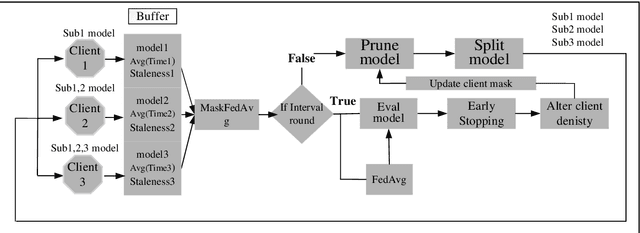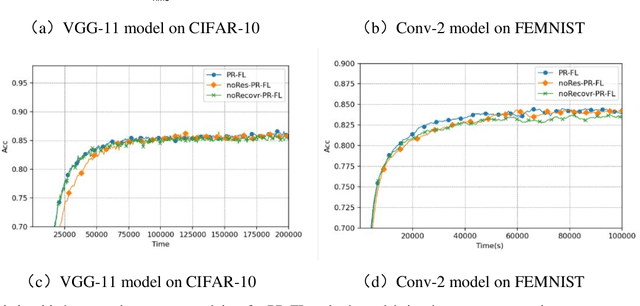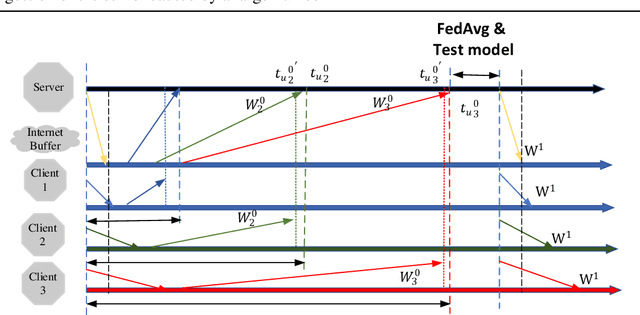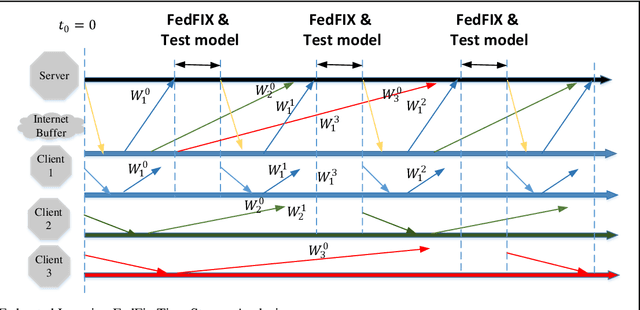Federated Learning based on Pruning and Recovery
Paper and Code
Mar 16, 2024



A novel federated learning training framework for heterogeneous environments is presented, taking into account the diverse network speeds of clients in realistic settings. This framework integrates asynchronous learning algorithms and pruning techniques, effectively addressing the inefficiencies of traditional federated learning algorithms in scenarios involving heterogeneous devices, as well as tackling the staleness issue and inadequate training of certain clients in asynchronous algorithms. Through the incremental restoration of model size during training, the framework expedites model training while preserving model accuracy. Furthermore, enhancements to the federated learning aggregation process are introduced, incorporating a buffering mechanism to enable asynchronous federated learning to operate akin to synchronous learning. Additionally, optimizations in the process of the server transmitting the global model to clients reduce communication overhead. Our experiments across various datasets demonstrate that: (i) significant reductions in training time and improvements in convergence accuracy are achieved compared to conventional asynchronous FL and HeteroFL; (ii) the advantages of our approach are more pronounced in scenarios with heterogeneous clients and non-IID client data.
 Add to Chrome
Add to Chrome Add to Firefox
Add to Firefox Add to Edge
Add to Edge